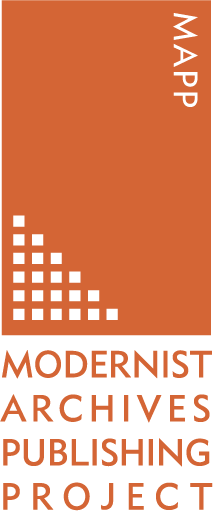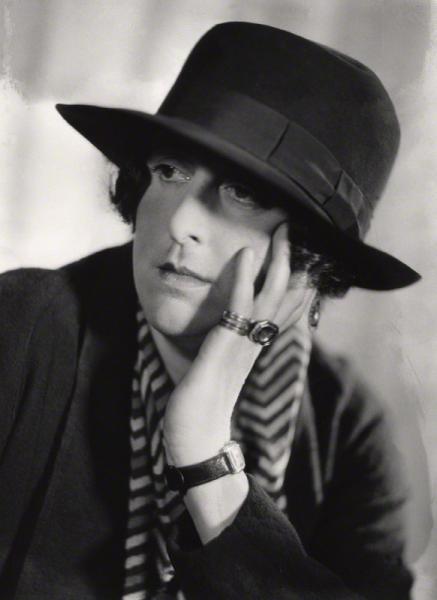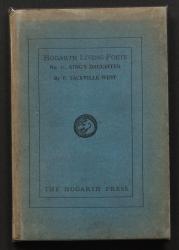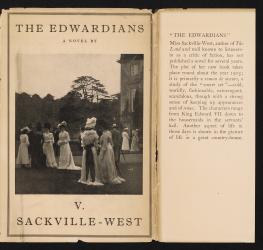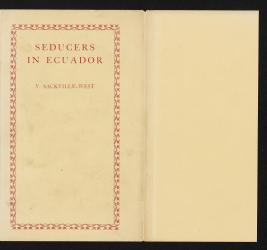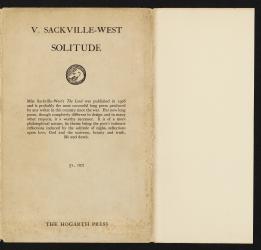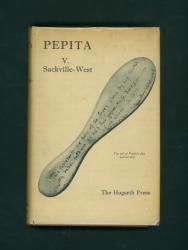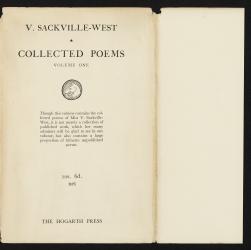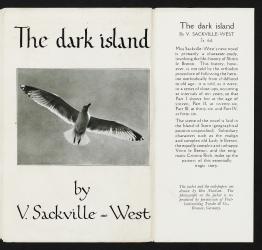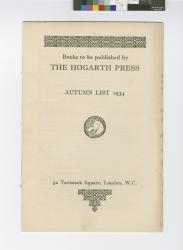Vita Sackville-West
Vita Sackville-West
Born:
Sevenoaks, Kent, United Kingdom
Died:
Sissinghurst, Kent, United Kingdom
Gender:
Occupation:
Biography
Authored By: Alison E. Martin
Edited By: Anna Mukamal, Nicola Wilson
Victoria [Vita] Mary Sackville-West, poet, novelist, and horticultural journalist, was born on 9th March 1892 at Knole, near Sevenoaks, and died on 2nd June 1962 at Sissinghurst. She was the only child of Lionel Edward Sackville-West, and his wife and first cousin, the society hostess Victoria Josefa Dolores Catalina Sackville-West. Vita Sackville-West’s aristocratic childhood was largely solitary, which encouraged in her a voracious appetite for reading literature and history. Through her mother, she was exposed to French culture from an early age and later travelled through Italy, Russia, Poland, Austria, and Spain, making her an unusually cosmopolitan young woman. Following her marriage to the diplomat Harold Nicolson, the couple began their married life in Constantinople before returning to Britain in 1914 for the birth of their first son, Lionel Benedict. They continued to spend their time between Long Barn, in Kent, and London, where their son Nigel was born in 1917.
The two decades that followed represent Sackville-West’s most prolific years as a novelist. Seducers in Ecuador (1924), the first of Sackville-West’s works to appear with the Hogarth Press, was published to critical acclaim and ‘inaugurated a seventeen-year personal and professional relationship of great importance between Sackville-West and the Woolfs’.[i] Sackville-West’s career as a writer—whose work ranged across travel writing, novels, poetry, biography and garden writing—flourished in collaboration with the Hogarth Press, which published her major novels The Edwardians (1930), All Passion Spent (1931), and Family History (1932), all within the space of three years. The Edwardians was the first work issued by the Hogarth Press to become a Book Society choice, and high sales figures for this and All Passion Spent—26,856 and 14,204 copies respectively in the first six months—realised first-year profits well in excess of a thousand pounds for each work.[ii] Virginia Woolf, who had marvelled early on at Sackville-West’s efficient working methods, noted in December 1922, ‘She writes 15 pages a day—has finished another book’.[iii] Ten years later, packing orders for the Hogarth Press, Woolf remarked, ‘The last 3 or four days I’ve done parcels in a daze: […] 6,000 Family History to be dispatched’.[iv]
During Sackville-West’s lifetime, the Hogarth Press published three volumes of her poems, nine prose works and her translation of Rainer Maria Rilke’s Duineser Elegien [Elegies from the Castle of Duino] on which she had collaborated with her cousin, Edward Sackville-West. She was, in Leonard Woolf’s terms, ‘an ideal author from a publisher’s point of view; she never complained when things went wrong and was extraordinarily appreciative of the publisher if they went right’.[v] While the Woolfs felt awkward at refusing her novel Grand Canyon (which subsequently appeared with the leading publisher of fiction Michael Joseph in 1942), they continued to print her poetry, and issued Solitude: A Poem (1938) and Selected Poems (1941). As a poet, Sackville-West is still best known for The Land, which received the Hawthornden Prize in 1926, although this did not appear with the Hogarth Press. It was published by William Heinemann and remained on the firm’s lists for over half a century.[vi]
The interwar years also, famously, saw Sackville-West explore more fully the complexities of her own sexual identity. Her affair with a schoolfriend, Violet Trefusis, verged on self-destruction and almost caused her marriage to Harold to sunder. The intense and passionate relationship that Sackville-West subsequently developed with Virginia Woolf, who declared her to have ‘the body and brain of a Greek God’, formed the basis of Woolf’s novel of historical fantasy, Orlando (1928). [vii]
In 1930 Sackville-West moved, with her husband and children, to Sissinghurst Castle in Kent. The remains of an Elizabethan mansion house and grounds, it enabled Sackville-West to channel her energies and horticultural knowledge into the laying out of new planting schemes. Sackville-West went on to enjoy a very successful career through the 1950s, penning a regular ‘In Your Garden’ column for the Observer and writing books published with Michael Joseph which were aimed at an audience of amateur gardeners. While Sackville-West is now most widely remembered for this horticultural journalism, it was her prodigious talents as a poet, writer, BBC broadcaster, and literary critic which initially brought her public acclaim.
[i]J. H. Willis, Leonard and Virginia Woolf as Publishers: The Hogarth Press, 1917 – 41 (Charlottesville: University Press of Virginia, 1992), p. 105.
[ii] Ibid., pp. 275-76.
[iii]Virginia Woolf, The Diary of Virginia Woolf, vol. II. 1920-1924, Anne Oliver Bell, ed., assisted by Andrew McNeillie (London: The Hogarth Press, 1978), pp. 216-7.
[iv]Virginia Woolf, The Diary of Virginia Woolf, vol. IV. 1931-1935, Anne Oliver Bell, ed., assisted by Andrew McNeillie (London: The Hogarth Press, 1982), p. 128.
[v] Leonard Woolf, Downhill All the Way: An Autobiography of the Years 1919-1939 (London: The Hogarth Press, 1968), p. 159.
[vi]John St John, William Heinemann: A Century of Publishing 1890-1990 (London: Heinemann, 1990), pp. 289-90.
[vii]Virginia Woolf, A Change of Perspective: The Letters of Virginia Woolf, vol. III: 1923-1928, Nigel Nicolson, ed., assistant ed., Joanne Trautmann (London: The Hogarth Press, 1977), p. 85.
Further Reading
Jullian, Philippe and John Phillips. Violet Trefusis: A Biography, Including Correspondence with Vita Sackville-West (London: Methuen, 1986).
Nicolson, Adam, Sissinghurst: An Unfinished History (London: HarperCollins, 2009).
Nicolson, Juliet, A House Full of Daughters (London: Chatto and Windus, 2016).
Sackville-West, Robert, The Disinherited: A Story of Family, Love and Betrayal (London: Bloomsbury, 2014).
Bibliography
Selected Bibliography
Barkway, Stephen. "'Oh Lord what it is to publish a best seller': The Woolfs' Professional Relationship with Vita Sackville-West" In Southworth, Helen. Leonard and Virginia Woolf, the Hogarth Press and the Networks of Modernism. Edinburgh: Edinburgh University Press, 2012.
Dennison, Matthew, Behind the Mask: The Life of Vita Sackville-West (London: William Collins, 2014).
DeSalvo, Louise, and Mitchell A. Leaska, eds., The Letters of Vita Sackville-West to Virginia Woolf. (London: Hutchinson, 1984).
Glendinning, Victoria, Vita: The Life of V. Sackville-West (London: Weidenfeld & Nicolson, 1983).
Hochstrasser, T. J., West, Vita Mary Sackville, Online at https://doi.org/10.1093/ref:odnb/35903.
Nicolson, Nigel,ed., Vita and Harold: The Letters of Vita Sackville-West and Harold Nicolson 1910-1962 (London: Weidenfeld & Nicolson, 1992).
Full Bibliography
Vita Sackville-West – Archival Material
Letters to Bodley Head Ltd., University of Reading, Special Collections.
Letters to Clive Bell, King’s College, Cambridge.
Letters to Sibyl Colefax, Bodleian Library, Oxford.
Letters to the Hogarth Press, University of Reading, Special Collections.
Letters to Leonard Woolf and Virginia Woolf, University of Sussex.
Letters to Royal Society of Literature, London.
Letters to Society of Authors, Add. MS 63324, British Library.
Letters and Diaries, Lilly Library, Indiana University.
Letters to the BBC, transcripts of broadcasts and copyright agreements for broadcasts of her work, BBC Written Archives Centre.
Lecture notes for the Lord Northcliffe Lectures, ‘Elizabethan Lyrics and Metaphysical Poetry’, 1934, University College London.
Manuscript notebook, containing draft versions of ‘In your Garden’ articles, Guardian News and Media Archive.
Sackville-West Papers, Beinecke Rare Book and Manuscript Library, Yale University Library.
